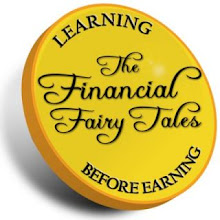Financial Fluency - Teaching Children About money
Financial Fluency – Teaching children about money
It is a widely held belief that the earlier children learn a foreign language, the quicker they will be able to pick it up and achieve fluency. The same is also true when it comes to teaching children about money and developing financial fluency. Teaching children from an early age how to save and budget in a fun and educational way can lay the foundations for sound money management later in life. A University of Minnesota study indicates that with as little as 10 hours of financial education, teachers and parents can positively affect children’s future saving and spending habits.
A good place to start teaching children about money is by demonstrating that money is used in exchange for goods and services, showing them that in making their own purchases they are in fact trading with the shop owner and receiving the product in exchange.
As an example, next time you are shopping, try to have the exact change for the product and give it to your child. Let your child hand over the money to the cashier and after you have left the shop, have a chat about how the money paid for the item. It is important to always approach teaching children about money with openness and honesty, giving a constant and clear message. Explain to them why they can or cannot have certain items they wish to buy. You can’t always say yes to a request for money and if it has to be a no, it does few favours being over indulgent, but equally the ‘because I said so’ clause has little educational merit.
Before long your child will have a basic understanding of money. When this happens you may wish to start explaining the bigger picture. You might consider showing children how the whole family benefits from money via a visit to the supermarket. Once there pick out two similar products, perhaps a well known brand and an own label and allow the child to make the choice. If they choose the supermarket’s own brand, allow them to make a further purchase with the saved money. This might be a useful starting point for a discussion about value vs. price.
Consider also the type of signals about money that your child picks up on. You may feel it's important to let your child know family money matters are private, and not for discussion outside the home. If however, as parents you talk in hushed tones over bills and bank statements, your child may deduce that finances are something to be secretive and furtive about. Similarly, if they pick up some stress and anxiety over money, this too is a value that can be carried forward into adult life.
7 tips to help teach children about money
1) Fun, fun, fun - make a game of both saving and spending. If only spending money is fun then they will not associate any pleasure with saving.
2) Routines - When they receive money as presents or from the tooth fairy establish a routine, like putting some or all of it in their piggy bank or savings account. They will most likely take these traditions forward into their own families.
3) Consistency - If you pay pocket money in return for helping around the house make sure they actually do the work. Even very young children can be responsible for tidying away their own toys or clothes. It’s a good idea to pay a set amount on a regular day but encourage their entrepreneurial side by giving them the opportunity to earn more if they seek it.
4) Look after the pennies - Turning off the lights, saving their pennies and giving small donations to charity collections are small things that they can do to create positive habits which may last a lifetime. Ensure that you explain why you are doing it and what the benefits are. Charitable giving can illustrate to your child that there are others less fortunate and introduce the idea to be grateful that they have more than enough.
5) Consequences - When your children ask for something, rather than say no. Ask them if they would like to buy it from their own money and explain what the consequences are. You may find that they are more reluctant to spend their own money than they are yours!
6) Praise, praise, praise - We may learn by our mistakes but by praising we reinforce positive behaviour and will encourage children to do the right thing out of choice ‘because it feels good’. This can be applied to saving, spending wisely and giving to charity.
7) Spend and save - when your children are receiving pocket money, teach them to save either some or all of it. It is always a good idea to let them spend a little however, as this encourages a work-like mind which will set them in good stead later in life.
For a fantastic new book designed to teach children about money in a fun and entertaining way, please visit thefinancialfairytales.com

